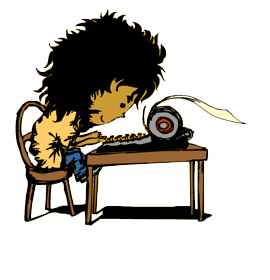The Making of Chinaman
- Shehan
- Jul 16, 2022
- 4 min read
Updated: Aug 30, 2022
First City (c) 2013.
The search for Pradeep Mathew

The idea grew as most do. As slowly as a tree, with the leaves coming before trunk. I can trace it to many threads, but here are three.
My adolescent fantasies of bowling left-arm spin for Sri Lanka. Which I carried into my 30s.
Peter Jackson’s Forgotten Silver, a mock-doc about an obscure Kiwi film-making genius. What if we relocated it from Christchurch in the 1890s to Colombo in the 1990s?
Nick Hornby’s Fever Pitch, which I loved, despite despising Arsenal. What if someone did a cricket version?
Those three thoughts collided years later, at a wedding, at 3 am, watching two arrack-soiled uncles coming to blows while the band played baila. It became the opening scene of Chinaman: The Legend of Pradeep Mathew. But only once I knew what they were fighting over. Not money or women or politics. But cricket, of course.
Over the next few years, that germ became a disease. One that made me quit my job in advertising and wake at 4 am for 2 years to watch cricket matches and chat with imaginary drunks.
What if the greatest cricketer of all time was unlucky enough to play for Sri Lanka the 1980s? What if two drunk pensioners decided to track him down?
It’s the research that saved it. Most writing starts as a spark that turns to smoke once the need to research overwhelms the drive to create. For this project, research meant watching cricket all day and spending my evenings in dodgy bars with drunks. One must suffer for one’s art.
The execution came along slowly. I tried different voices. Began with third person past, moved to second person continuous, ended with a cacophony. It’s only when I came across WG, the alcoholic sportswriter, that the story began spitting out from the keyboard.
I collected anecdotes and stats. Cricket is the second most catalogued item on the web, next to porn. I chatted to ex-players, ex-commentators and ex-drunks. Collected theories from the weary and whinges from the fringes. What was supposed to be a sleek 200-pager became a 600-page bible.
At the end of 2008 I had a first draft. It was ragged and naïve. But there was a story; a beginning, a middle and an end. I submitted the manuscript for the Gratiaen Prize, shared it with a few friends and asked them to be honest. Then I dived back into the research, back to interviewing drunks, terrorists and cricketers.
I reread the made-up and not-so-made-up stories. I prodded them until they creaked. Some fell over, some collapsed inwards, some broke into shards. I tried to leave out the boring bits, without losing any of the good stuff.
Your first readers are important. They don’t have to be close friends or literary experts, though they can be both. They just have to be readers with opinions, who will tell you if you suck and would be kind about it.
The manuscript won the 2009 Gratiaen Prize and one of the judges, Michael Meyler, a brilliant English lexographer marooned in Sri Lanka, agreed to line edit and proof. Lanka’s best contemporary playwright, Ruwanthie de Chickera gave structural advice and helped me chop chunks. My gifted brother Lalith supplied the drawings, book design guru Deshan Tennekoon did the layout and my wonderful wife Eranga provided sage advice on everything.
After two and a half years I had a book with a bright red cover and no publisher. No big surprise. Most Lankan writers in English self-published and hitched their wagons to a local distributor.
I spent the months of the final edit sending queries to publishers and agents in cricket playing countries from the Caribbean to Down Under. Five every Friday. Some asked for manuscripts, some said no thanks, most didn’t reply.
I took an advertising job in Singapore, sent the book to the printers and moved on. Plunged feet first into the rat race, now that I’d got the novel thing out of my system. Stopped watching cricket. Began thinking of things other than books.
Then in early 2010, one of my prayers got through. The angel came in the form of Chiki Sarkar, then Editor-in-chief at Random House India. She read, agreed to buy and offered to edit.
Things happened slowly after that. The final edit shaved 100 pages off the self-published original. The kind reviews trickled in. I went to literary events and pretended that I still watched cricket.
Then Waterstones UK picked it as one of 11 top debuts for 2011, the Guardian picked it for the Booker Prize, though the Booker judges didn’t. I got married. Sri Lanka lost another World Cup final. And I quit my job again to start waking up at 4 am.
Over the next year, it picked up great reviews and acquired an audience, many of whom knew nothing of cricket or Sri Lanka. Then it won the DSC Prize for South Asian Fiction at Jaipur. And Salman Rushdie tweeted about it.
Today it is shortlisted for the Commonwealth Writer’s Prize. And I am about to embark on a voyage to America to promote The Legend of Pradeep Mathew (Chinaman is too un-PC for the Yanks) to a continent that knows nothing about my country or its national sport. I am not yet tired of talking about cricket or drunks, though I may be soon.








Comments